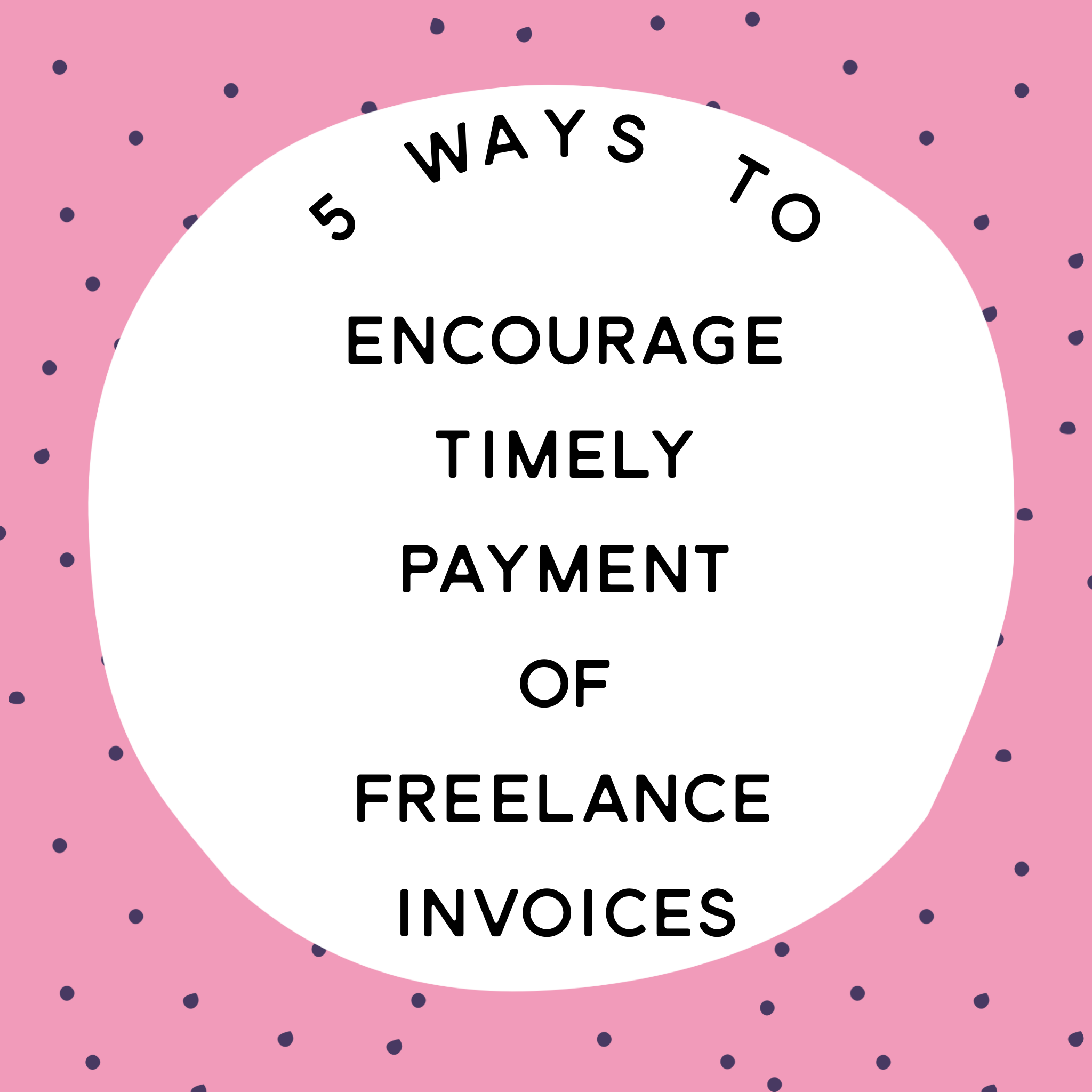
Late payment of invoices is the number one complaint of freelancers. Here are 5 tips to build into your business practices to increase the chances of your invoices being paid in a timely manner.
- Spell It Out in T&Cs
Have clear terms and conditions (including notification of charges for late invoices). Late Payment legislation in the UK says thatt 30 days payment is considered standard for both private and public sector freelance work unless specified otherwise (Small Business Commissioner). Invoices not paid after 30 days are subject to interest (8% above the Bank of England base rate) and compensation for debt recovery (for invoices up to £999.99 this is £40, £1,000 to £9,999.99 is £70, and over £10,000 is £100). The Small Business Commissioner has an online calculator. If you are not in the UK, check to see what legislation prevails where you live. Even if you don’t have legislation on your side to guide you, you can still add late payment charges and interest to your terms and conditions. If the client doesn’t like it, they either negotiate it away (which is up to you to accept or not) or they don’t hire you, but them negotiating away late payment charges is probably a red flag anyway so you might be best to steer clear. Decide what feels right to you, put it in your T&Cs and review it with every new client and every new engagement. And then be sure to enforce it if the client is late! - Understand and Follow Guidelines
Where you can’t set the terms and conditions for payment, for example working for larger companies where you have to follow their billing procedures for independent contractors, then be sure you understand the timelines and processes clearly for submitting invoices or timesheets. Review the appropriate processes before any job with the client. For example, you may need a specific project code or purchase order number – if these are missing it can slow down your payment. Also do they pay invoices 30 days from receipt or 30 days after the end of the month in which they are received? Be sure you understand their processes and follow the guidelines correctly. - Always Have a Contract and Include Payment Terms
Whether using your own contract or your client’s contract, be sure the contract includes the payment terms. Hopefully it goes without saying to have a contract in place for every job no matter how small a job or how regular a client this is. Protect yourself by having a signed contract for every engagement. The number of times I have seen people messed about because they start work on a project based on verbal conversations without getting any written contract in place and then the project goes sideways. Make it a habit to always have a contract in place. - Invoice Timely
Issue your invoices on time and at the agreed frequency (it may even be an option to submit them early). If you are late and sloppy with submitting your invoices you can’t expect the client to be timely in paying them. - Confirm Receipt
Get confirmation the invoice has been received on time (ideally via email so you have it in writing). This is an opportunity to confirm when invoice will be paid. If payment is late, it is also evidence that you have submitted on time as per their process.
While it is impossible to fully prevent late payments, following the above guidelines will go a long way to encouraging timely payment and putting mechanisms in place for financial penalties if payment is not on time.
While non-payment is rare, it does happen. Look out for an upcoming blog post about 10 ways to help prevent non-payment.
Do you have a good tip to encourage timely paying of invoices? What problems do you encounter with your invoices?
Leave a Reply